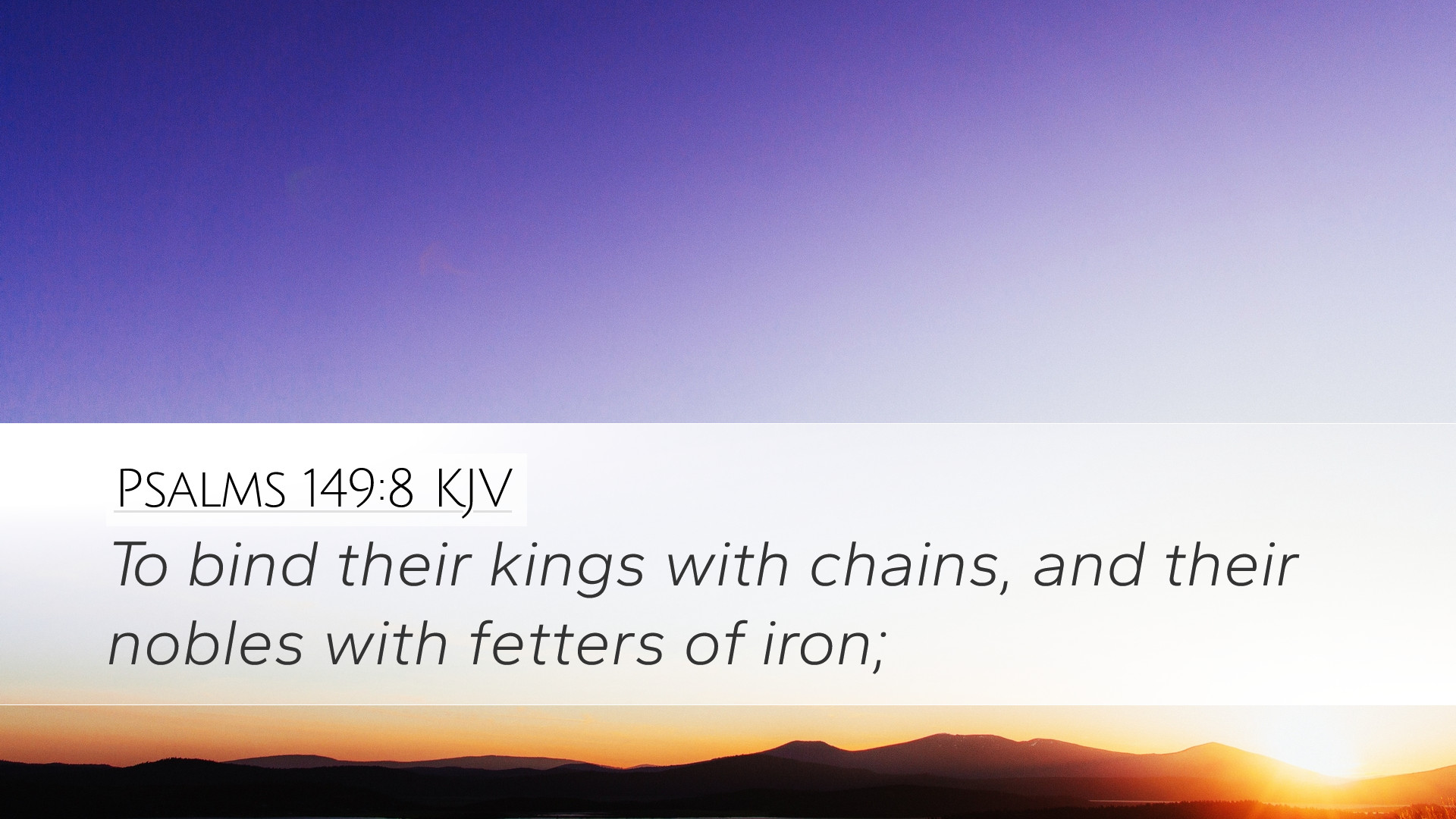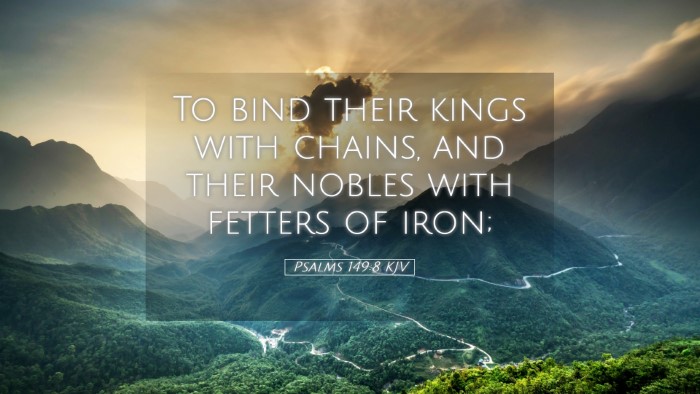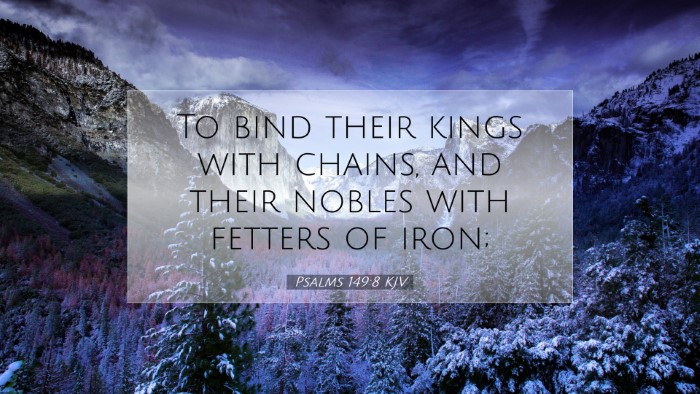Psalms 149:8 Commentary
Verse Context: Psalms 149:8 states, "To execute vengeance upon the heathen, and punishments upon the people." This verse is part of a psalm that celebrates the triumph of God's people, emphasizing His sovereignty and the eventual victory over their enemies.
Understanding the Verse
Psalms 149 serves as a resounding proclamation of praise and zeal for God's work in the world. Verse 8 encapsulates a significant aspect of divine justice and retribution, illustrating how God's people are called to engage in the cosmic battle against evil.
Historical and Theological Context
This psalm occurs in a post-exilic context, possibly reflecting the struggles of the Israelite community in reclaiming their identity and asserting God's supremacy against surrounding nations. Commentators like Matthew Henry highlight that the exhortation to "execute vengeance" should be understood within the framework of righteous indignation and divine command rather than personal vendetta.
Insights from Commentaries
- Matthew Henry: Henry underscores that vengeance belongs to the Lord. The psalmist does not advocate for personal revenge but rather points to a divine mandate. The intent is to affirm God's authority to enact judgment upon those who oppress His people.
- Albert Barnes: Barnes explains the phrase "execute vengeance" as a spiritual call to action, emphasizing the role of the community of believers in fulfilling God's justice. He notes that this vengeance serves as a means of purification and redirection toward righteousness for those who have strayed from God's path.
- Adam Clarke: Clarke presents a nuanced interpretation of the term "heathen," suggesting a broader understanding of those who reject God’s covenant and live in opposition to His laws. His commentary draws attention to the necessity of confronting injustice and highlights the eventual triumph of God's kingdom over all opposing forces.
The Nature of Divine Vengeance
The term "vengeance" in the biblical sense often conveys God's justice rather than mere punishment. Vengeance in Psalms 149:8 serves as a reminder of God's ultimate authority in righting wrongs. This divine vengeance anticipates the restoration of order and righteousness, drawing believers to trust in the Lord's timing and wisdom.
The Role of Believers
Believers are portrayed as instruments of God's justice. They must carry out His commands in the world, advocating for justice and integrity among nations. This emphasis indicates that while divine judgment is a sovereign act of God, He utilizes His people to fulfill His redemptive purposes.
Exhortation to Praise
Psalms 149 begins and ends with calls to praise the Lord, creating a framework that emphasizes worship as central to the believer's life. The context suggests that proclaiming God's justice is an act of worship, bringing glory to His name. Henry points out that the faithful are to rejoice in the prospect of God's sovereign judgment and the establishment of His kingdom on earth.
Contemporary Application
The themes in Psalms 149:8 remain relevant today, as believers face social injustices and moral decay. The action of "executing vengeance" calls for a prophetic voice, urging the Church to address issues of unrighteousness while clinging to the hope of God's ultimate justice. Barnes reminds readers that while believers should not seek personal vengeance, they must actively uphold the principles of justice and righteousness in their communities.
Conclusion
Psalms 149:8 serves as a significant reminder of God's justice and the role of His people in the world. Through the insights of historical commentators, it becomes apparent that while the call to execute vengeance may evoke discomfort, it reflects a deeper principle of divine justice that ought to lead believers to action in love and righteousness.
Reflection Questions
- How can believers actively participate in God’s justice in today’s world?
- In what ways can the Church address social injustices reflecting biblical principles?
- What does it mean to praise God in the midst of injustice and awaiting His judgment?


